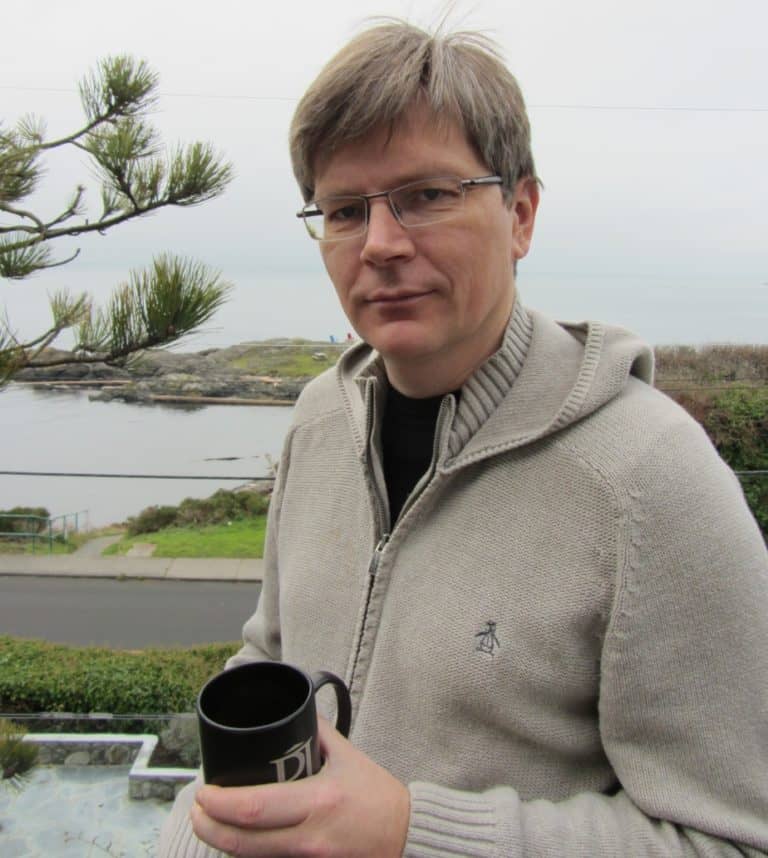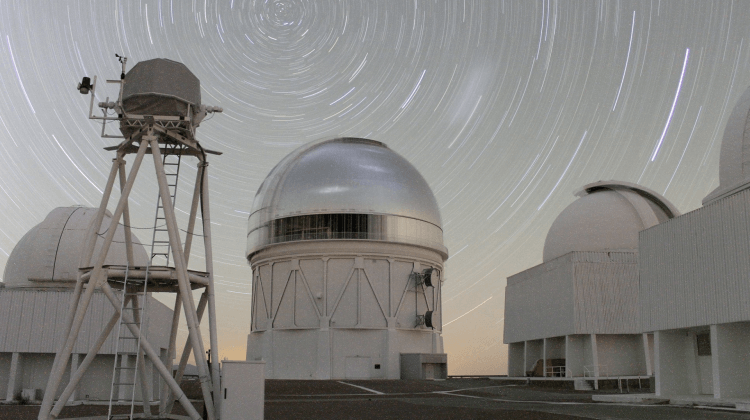Maxim Pospelov: Is space foamy?
Perimeter Associate Faculty member Maxim Pospelov and his collaborators say our solar system might be crashing through bubble after bubble in a foamy cosmos – and we might be able to detect bubble walls as we pass through them.

Is space foamy? One of the potential explanations for the mystery of dark matter and dark energy is that the universe is made of cosmic foam – bubbles bounded by domain walls where the bubbles touch. New calculations by Perimeter Associate Faculty member Maxim Pospelov show that the Earth may pass through domain walls regularly. What’s more, we may be able to detect them as we pass. Pospelov and his collaborators have proposed a first-of-its-kind detector to do just that. The idea of a foamy cosmos is not new: it arose as a potential solution to the mystery of dark matter and dark energy. The foamy picture begins with a hypothetical field which has several possible ground states. In the hot chaos of the early universe, this ground state value would have been jumbled, with every point having a different ground state. As the universe expanded and cooled, large regions of space would have settled on a single value. Since then, they would have ‘frozen’ into place, in a kind of invisible cosmic foam. The energy locked into these structures could contribute to those mysterious substances, dark matter and dark energy. In the recent research, Pospelov estimated the size of the domains in the cosmic field – the bubbles in the foam. He found that the bubbles are small enough that the known speed of the Earth – created largely by the motion of the galaxy and the motion of the sun with respect to the centre of the galaxy – would cause it to pass through many domain walls over the course of a few years. Wall crossing events, then, are rare, but not impossible. Could they be detected? The collaboration thinks so. The hypothetical field is expected to exert a torque on atomic spins, just as magnetic fields do. This torque would change most quickly at the walls. Using assumptions from other theories for the coupling of their hypothetical field to ordinary matter, Pospelov and his collaborators calculated that changes equivalent to perhaps a billionth of the Earth’s magnetic field over a millisecond might be expected. Recent years have seen significant progress in detecting ever-so-small influences on atomic spins using devices called atomic magnetometers. These magnetometers are now sensitive enough to pick up the expected wall-crossing signal; indeed, they are so sensitive that the challenge will be sorting the small and rare signal of wall-crossing from the many other things they can detect. To overcome that challenge, the collaboration proposes a network of magnetometers – that is, several identical devices placed in different geographic locations and synchronized via GPS. Having widely separated but synchronized devices allows tiny signals to be cross-checked. The collaboration, then, has taken two small things – new calculations about the relatively small size of cosmic bubbles and the new small signals that can be picked up by today’s magnetometers – and put them into one big new idea: the ‘cosmic foam’ hypothesis can now be directly tested for the first time. Their work, published in Physical Review Letters, was recently chosen as a spotlight by the American Physical Society and currently appears in New Scientist.





















































































